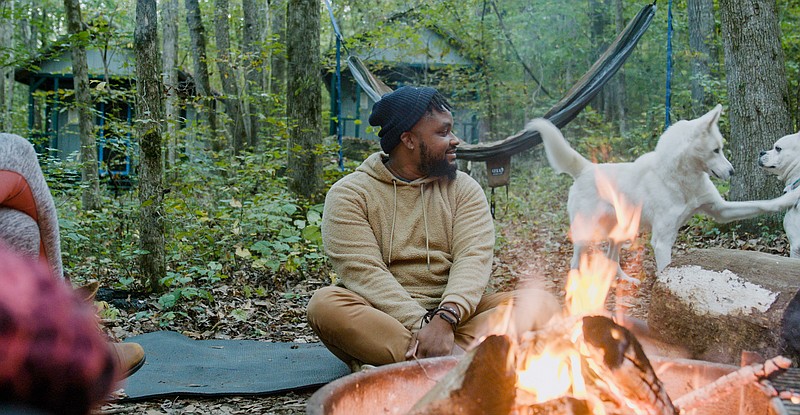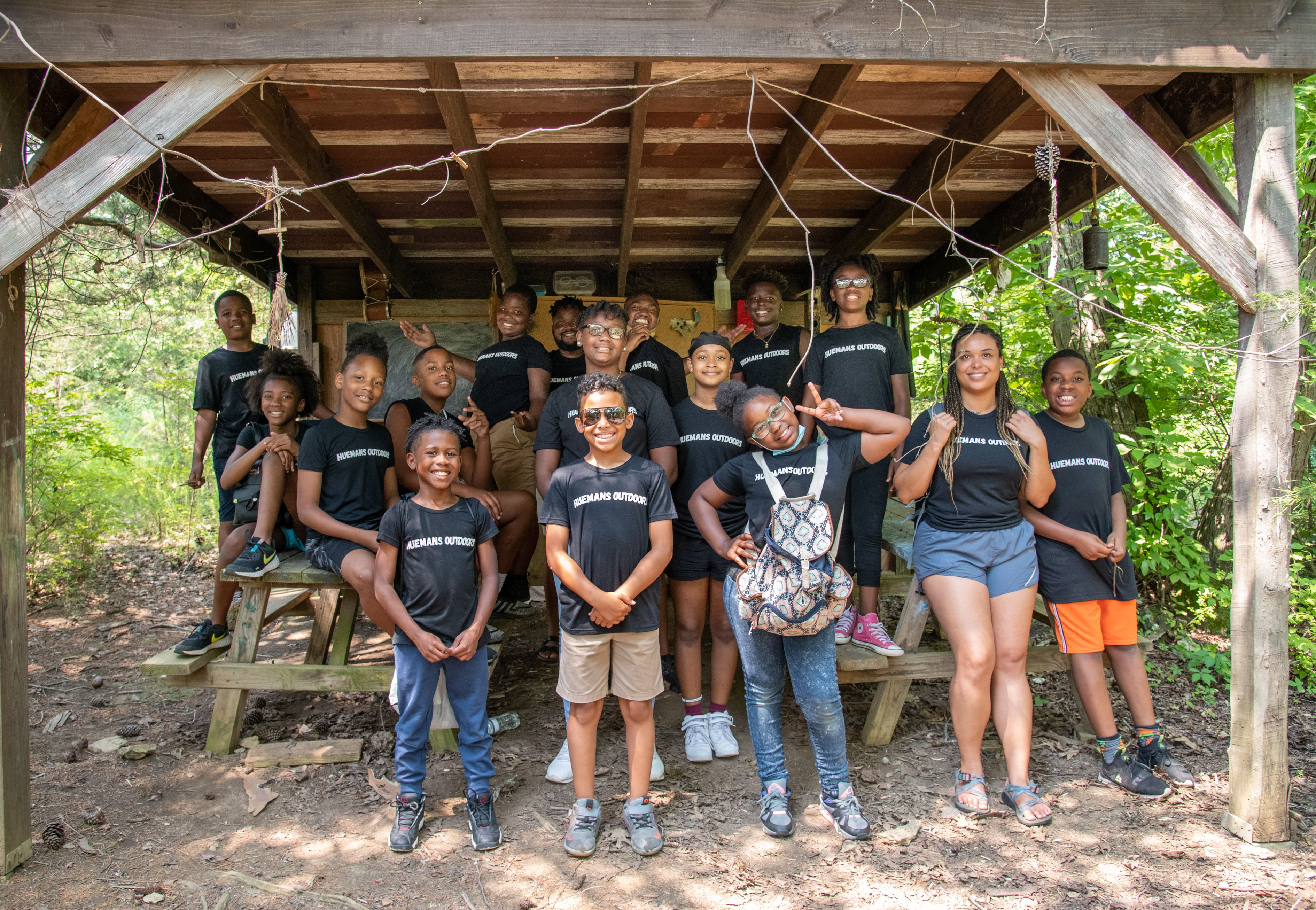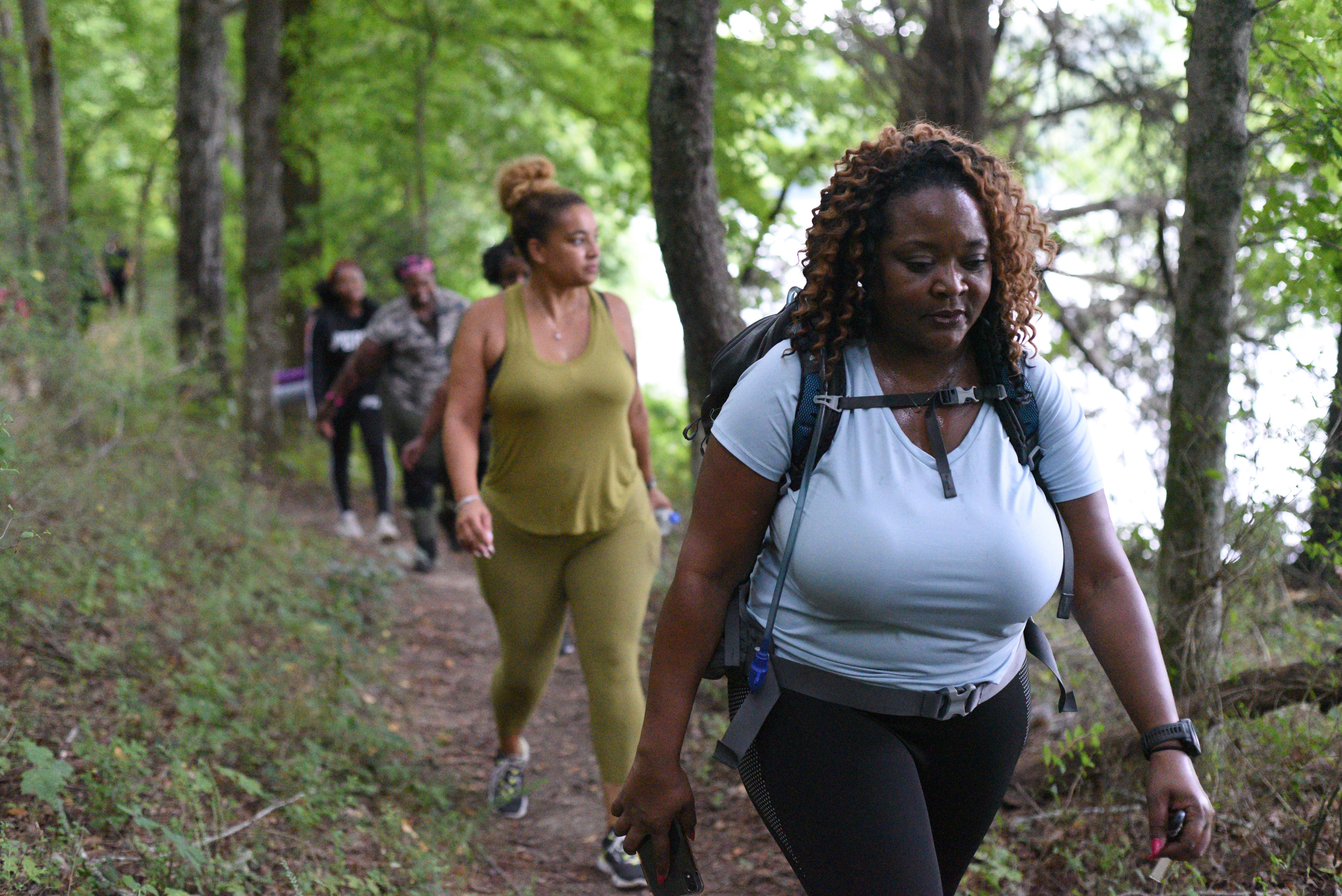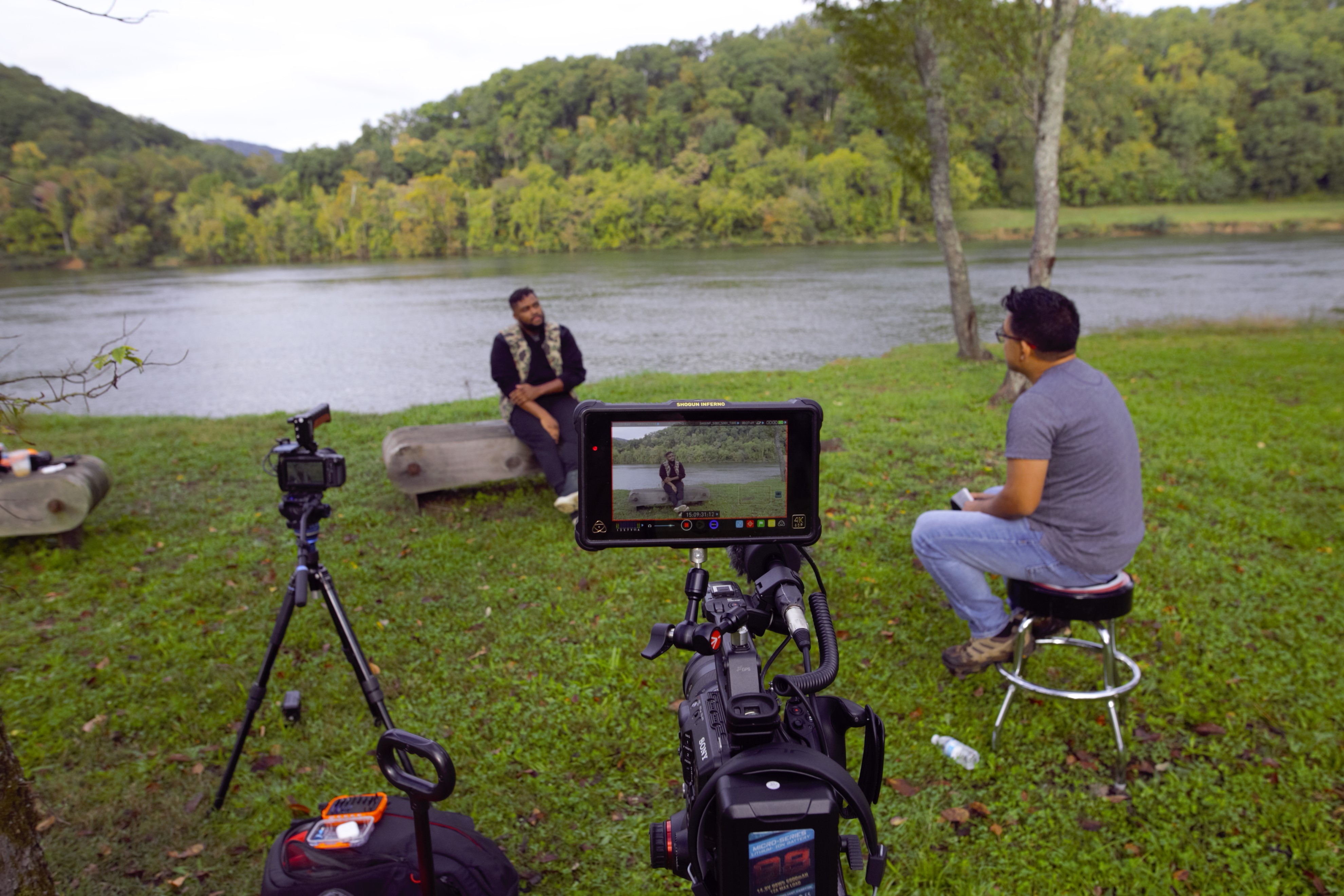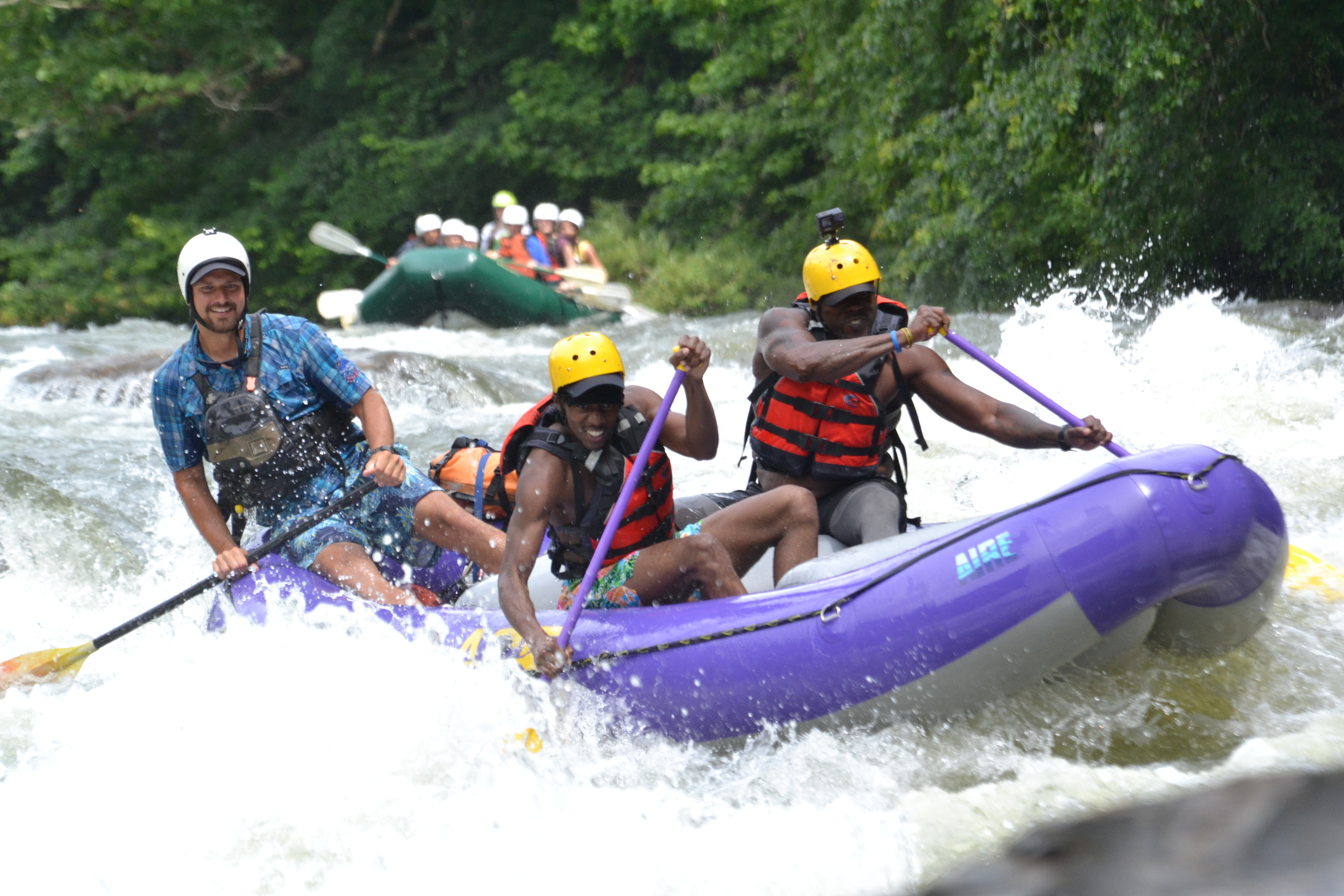Clark Brewer remembers the first time he felt that he didn't belong.
He was in kindergarten and new to Chattanooga's Senter School, a now-shuttered private school where both his father and grandfather worked as custodians. On the first day, the teacher went around the room and asked each student to say their name.
When it was Brewer's turn, he panicked and ran out of the classroom.
"The principal had to call my dad to calm me down," remembers the now-37-year-old. "It was culture shock. I was one of maybe three Black kids in the whole school, and I was terrified."
But, says Brewer, it was a pivotal experience - his first understanding of what it meant to be a person of color navigating a white-majority space.
^^^
Since childhood, Brewer has had an affinity for the outdoors. He grew up in Chattanooga's East Lake Courts, a predominantly Black neighborhood, and says he spent most of his time in the wooded lot behind his housing project. In the second grade, he became friends with a white family who introduced him to camping, rafting and fly fishing.
He remembers their first trip to the Hiwassee River and says, "I saw rebel flags. I saw only white people. I got out of the truck and thought, 'So I'm just supposed to stay out here with nobody that looks like me?'"
But, he says, the family "never made me feel that I didn't belong." And the more weekends he spent on the river, the more Brewer began to believe he belonged, too.
"Nature helped me process a bigger world outside of the projects. You have trees, lakes, rocks, animals; all these colors, all these hues, existing together with no prejudice," Brewer says. "It became my purpose to connect humans to nature, to help them realize that we can exist that way, too."
In 2017, Brewer helped found Bridge Chattanooga, an after-school program that connects students of Dalewood Middle School to outdoor opportunities. The program focuses on children of color who are considered "disruptive" in the classroom, or as Brewer prefers to call them, "kids with energy," struggling with attention or anger issues. Three days a week, Brewer led small student groups on various adventures - swimming, hiking or caving, for example.
"'White-people stuff,'" says Brewer, echoing the sentiment he says he commonly heard from the students.
"My response is always, 'How is this white-people stuff?' Think about our ancestors. We lived in Africa. We hunted; we built homes; we did things outdoors,'" Brewer says. "I [tried] to show them, look, here's a person that looks like you, a person from the projects with 'locks and tattoos. It's OK to be here."
In early 2021, Brewer expanded his vision and launched Huemans Outdoors, a nonprofit organization designed for all ages and "hues" of people. Similar to Bridge, his goal is to connect more people to the healing properties of nature through group hikes and outdoor meditations - for which he became a certified mental health first responder and a certified meditation guide. In August, Brewer partnered with Jean Lomino, founder of the Wauhatchie School and the recently opened Nature Kin Farm and Forest School, where Brewer will continue the work of Huemans.
Meanwhile, on Huemans' website, he sells clothing - tees and hats, for example - to help raise money to purchase outdoor gear for inner-city children.
"A North Face jacket is out of reach to a lot of these kids. A lot of them don't have things like water bottles or rain jackets," he says.
In fact, the cost associated with outdoor recreation, from gear to park fees, is one of the largest barriers preventing more Americans from getting outside, according to a 2020 Outdoor Foundation survey.
The same report found that, when compared to the white population, Black and Hispanic Americans are significantly underrepresented outside and that this is especially true among youth. More than 40% of Black children ages 6-17 did not participate in any outdoor recreation in 2019, reports the foundation, a rate much higher than other groups. And previous studies have shown that those not exposed to the outdoors as children are less likely to participate as adults.
"Fear is what comes up more than anything else. Fear of the unknown; fear of snakes; fear of who you might encounter on the trail," says Shawanna Kendrick, owner of H2O, a new guide service that leads women of color on hikes throughout the Chattanooga area.
Before 2020, Kendrick, now 45, had never been hiking. The year prior, she had traveled to China through RISE Chattanooga, formerly Jazzanooga, with six local singers, to perform at the Shanghai International Arts Festival.
"We were the only African American group to perform, and we were treated like royalty," Kendrick says. "When you step onto foreign land and are treated better than you sometimes are at home, that did not go unnoticed."
The experience empowered her. Upon her return to Chattanooga, she was inspired to try something new. So, she texted several of her friends and told them, "Don't plan anything for Saturday morning. We're going hiking."
Having no prior experience, Kendrick asked a white colleague for trail recommendations. Then, that Saturday, she and a few friends, who had also never been hiking, made the drive to Signal Mountain's Signal Point trail.
"We [hiked] all the way to Julia Falls overlook and had an absolute blast," Kendrick says. "When you see someone who looks like you doing something you've always wanted to try, it gives you courage."
The success of that outing led Kendrick to found H20, which stands for "hiking, healing and the outdoors." She received her wilderness first aid certification and created social media pages, inviting women of color to sign up for her small group hikes, for which she charges a small fee and leads 1-2 times per month.
The goal, she says, is to give women the space to push their mental and physical limits, and to unburden themselves, if for only a few hours, of societal pressures.
As a Black woman, says Kendrick, "There is so much weight that comes with just living. The moment I step outside of my home, I have to be on my toes. I know there are people out there who don't like me because of the way I look."
She carries some of that caution onto the trail.
"I won't take people anywhere I haven't been," she says. "I won't lead people into places they're uncomfortable. You can do hard things, you just have to be smart about how you do hard things."
Kendrick remembers her most difficult hike to date, a trail to a waterfall at Denny Cove near Sequatchie, Tennessee.
"It was only 3 miles but felt like 10," she says. "You had to climb over boulders. You look out at this terrain and think, 'Oh my God, I can't do this.' Well, yes you can, because guess what? You're going to get through this. You will make it your destination."
^
Bigger Than Me
This May, "Bigger Than Me," a documentary chronicling Clark Brewer's work, premiered at Reflection Riding Arboretum and Nature Center.
The 13-minute film was a passion project, says Executive Producer Pablo Mazariegos, who began production in late 2019.
Then, over the following months, he and his crew watched as a myriad of new social issues overtook America: the pandemic; BLM protests; economic upheaval.
For many, he says, access to nature moved to the bottom of the list. But Mazariegos never wavered in his commitment to the story. As a Guatemalan whose family immigrated to America when he was a child, Mazariegos says, "I understand the pursuit of freedom through land."
"Bigger Than Me" is about Brewer's experience, but, says Mazariegos, "I couldn't help but think, this is my experience, too. How does a person proceed when they have been given a calling so precious but are the least likely voice?
"We have to be part of the picture before there is a story to tell."
^
An emerging community of trailblazers
In 2013, Moise Baptiste and his wife Shewanee moved from Ithaca, New York, to Chattanooga after falling in love with the Scenic City on a business trip.
"The next six years were hell for me," he says. Despite having a Ph.D. in educational leadership, Baptiste struggled to find work.
To work out his frustration, he began trail running - which led to hiking, then stand-up paddleboarding.
"I am addicted to the paddleboard," he now says. "Finding balance is hard. [The paddleboard] shows me my flaws and the things I need to work on."
Eventually, Baptiste accepted a position through the Public Education Foundation. But his newfound commitment to the outdoors never wavered.
In 2020, he founded TrailBlazUS Outdoors, a project dedicated to connecting people of color to the outdoors through events such as group hikes and rafting trips.
"I like to call it a 'reintroduction' to the outdoors," Baptiste says. "We are all descendants of Africa. We are all designed for this."
SAVE THE DATE
On Saturday, Oct. 30, TrailBlazUS Outdoors is hosting a fall festival at Reflection Riding Arboretum and Nature Center. The event is for people of color and their allies, says Baptiste, and will feature a "90s hip-hop and R&B" theme, complete with food, spirits and dance floor.
Throughout the event, there will be opportunities to learn about the nature center's resident wildlife.
"This is our chance to try something new and build a community together," he says.
